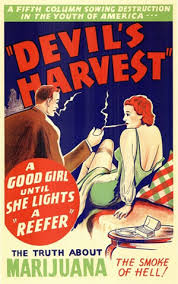If you have ever sat through a middle school/high school drug seminar, the gateway theory  was probably drilled into your head. The gateway drug theory suggests that the use of cannabis will cause a want or drive to do harder and stronger drugs. Whoever uses cannabis might enjoy it (or become addicted to it) so much so that they seek the high again, eventually moving onto stronger substances.
was probably drilled into your head. The gateway drug theory suggests that the use of cannabis will cause a want or drive to do harder and stronger drugs. Whoever uses cannabis might enjoy it (or become addicted to it) so much so that they seek the high again, eventually moving onto stronger substances.
As with all mind altering substances and drugs, a tolerance is built up within the human body the more it is used. That is why a 45 year old man can drink more than a 21 year old woman. A combination of his weight, age, and experience drinking alcohol give him a tolerance to alcohol. His tolerance to all alcohol goes up as he drinks more frequently and the longer he is a drinker. The most common drinks he might indulge in will become less and less potent to him the more he drinks them. That is why if you only drink vodka for a month, tequila of the same alcohol content will get you more drunk. The effect is even worse if the same brand and type of alcohol is drunk continually (such as only drinking Jack Daniels whiskey instead of any other kind).
These effects happen with cannabis as well. The more someone smokes in a given time, the more it will take for them to get high the next time they smoke. This is where the gateway drug theory comes into play. With many addictive substances, the gateway drug theory can hold true. Those who become addicted to less strong drugs will often move onto harder ones due to the withdrawals symptoms of the drug they started with. Not only has their tolerance gone down, so the first high they are chasing is never achievable again, but its also taking them more and more to get a fix.
Cannabis is not as addictive as most drugs. For a substance to be considered addictive, there must be a consequence for not being on the drug; most often called a withdrawal. The most common withdrawal we are accustomed to here in the United States is a hangover. After a long night out at the bar, the next morning is usually met with a splitting headache and an overall feeling of terribleness. Nobody enjoys a hangover. Cannabis does have a withdrawal, but it is nothing compared to what a hangover is. If you are not used to weed at all, you might feel a little slow the next morning, but after a shower you will feel as good as new.
The types of withdrawals that the gateway theory can apply too are withdrawals that come from drugs such as alcohol, nicotine, or harder illegal drugs such as heroin. One of the common party drugs being used at raves is molly, or MDMA. Molly will give you a minimum of 3 day’s worth of withdrawal symptoms after your first use which includes: nausea, lack of apatite, depression, thoughts of suicide, and many others. If you do too much, you might suffer from serotonin syndrome which will flood your brain with serotonin while on molly, but after will leave you completely out of serotonin (the chemically that makes you feel happy). Serotonin syndrome is a life threatening situation that should be handled maturely, call the police if you or anyone you know are showing signs of serotonin syndrome.
The gateway theory simply doesn’t apply to cannabis in the same way it does to molly or cocaine. Most users of cannabis report having no withdrawal at all, or very little in the form of slight morning grogginess or tiredness. However, this doesn’t mean that the gateway theory cannot pose a threat. The gateway theory can apply to cannabis in certain situations. If you or someone in your family has a history of drug abuse problems, the temptation of cannabis itself might be enough. Just in the way that some people can be completely addicted to video games and others hate them, you could have a mind that is wired to like drugs and have a higher susceptibility to abuse them. Know your body/mind and how you deal with addictions before you start to use any drug, whether it is nicotine, alcohol, or cannabis.
Scientifically, there is nothing in cannabis or any substance that makes someone forced to try a harder or stronger substance. Nothing can turn you into a mind numbed zombie that sticks needles into your arm without even knowing what’s happened. Not even cocaine or heroin can force the user to try something different, that ultimately falls on that persons choice to try the next harder thing. Since the use of harder and stronger drugs is the choice of the person, the gateway theory doesn’t fit its original description very well. The gateway theory better fits a person who has chosen to try drugs, and actively decides to seek new ones out or; someone who has tried drugs and has triggered a predisposition for drug abuse that may have existed in that persons family or personal past.
Drugs force the user to try harder and stronger drugs: MYTH
A predisposition for drug abuse in a person’s life or family history is always dangerous when using drugs: FACT
